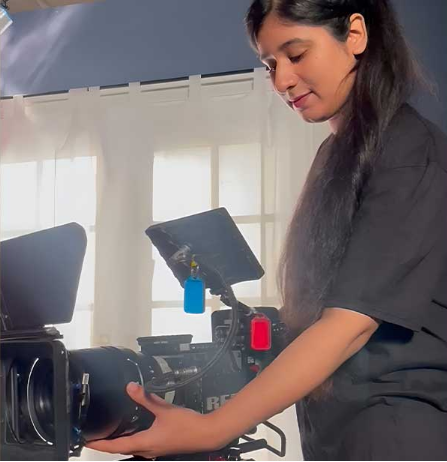
“Through capturing the ordinary lives around me, I intend to bring up conversations on extraordinary solutions,” said Eman Munir, a young filmmaker from Pakistan and one of the winners of the UN Human Rights Film Contest.
Munir is one of several young talents who took part in the short film contest organized by the UN Human Rights Training and Documentation Centre for South-West Asia and the Arab Region.
With her film “Lovely Flowers”, Munir highlighted the right to education and a dignified life. She captured a day in the life of children who don’t attend school, which are often seen as an accepted norm in Pakistan.
“While we inherit the privilege to receive education, kids like Azmatullah and Qudratullah are earning bread for their families, unaware of the life they deserve,” Munir explained. “But my primary message is the message of hope and happiness that is evident through them.”
Empowering youth
The competition was created to engage and inspire young filmmakers to creatively explore and advocate for key human rights issues impacting their communities.
Before submitting their films, all participants attended awareness sessions led by the Centre, helping them understand human rights concepts and incorporate them into their storytelling.
“The objective was to transfer education and knowledge around human rights to youth in a non-conventional way that would allow them to express themselves and speak on behalf of their communities,” said Bouchra Elias, coordinator for the Human Rights Education Portfolio at the UN Human Rights Training and Documentation Centre in Doha.
The competition was open to all 22 Arab countries, as well as Afghanistan, Pakistan and Iran. Filmmakers from nine countries submitted a total of 28 films (5 minutes each). A jury then selected 10 finalists and two winners.
“The films truly reflected the voices of the filmmakers,” said Mohamed Abousoliman, coordinator for the Knowledge Management and Documentation Portfolio at the UN Human Rights Training and Documentation Centre. “Watching the films transported us into their worlds.”
A voice to lost dreams
Nader Al-Razi, the contest’s second award winner, grew up in Gaza’s Nuseirat refugee camp, where he experienced war from an early age. Determined to tell the stories of his people, he studied digital media at the Islamic University in Gaza and began making short films about the struggles of refugees.
His winning film, “Al Maha”, follows a 16-year-old girl forced into child labor to provide for her family.
“Maha took on the responsibility of providing for her family when she was supposed to be carrying her pens,” Al-Razi said.






